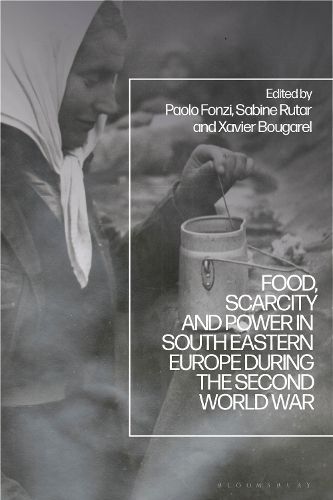Food, Scarcity and Power in Southeastern Europe during the Second World War

Food, Scarcity and Power in Southeastern Europe during the Second World War
The experience of all occupied countries during the Second World War was characterised by severe material shortages. Food, most noticeably, became a scarcity in everyday life; and that food grew into a major stake for all political groups at this time. This book shines a much-needed spotlight on the political role of food in Southeastern Europe from 1939 to 1945.
Controlling food was a key strategy adopted by all actors - be they occupiers, state institutions, resistance organizations, international humanitarian organizations or private interest groups - in substantiating their bid for power. As a predominantly agrarian area with a substantial peasant population, investigating this topic is particularly poignant for Southeastern Europe. From discussions of searching for and fighting for food to offering relief and instrumentalising of food politically, the chapters in this volume add nuance to discussions on the complex intertwined political and social dynamics of war and occupation. In so doing, this sophisticated study fills an important gap in our understanding of the Second World War, food policy, and the social history of Europe more broadly.
This item is not currently in-stock. It can be ordered online and is expected to ship in approx 2 weeks
Our stock data is updated periodically, and availability may change throughout the day for in-demand items. Please call the relevant shop for the most current stock information. Prices are subject to change without notice.
Sign in or become a Readings Member to add this title to a wishlist.


